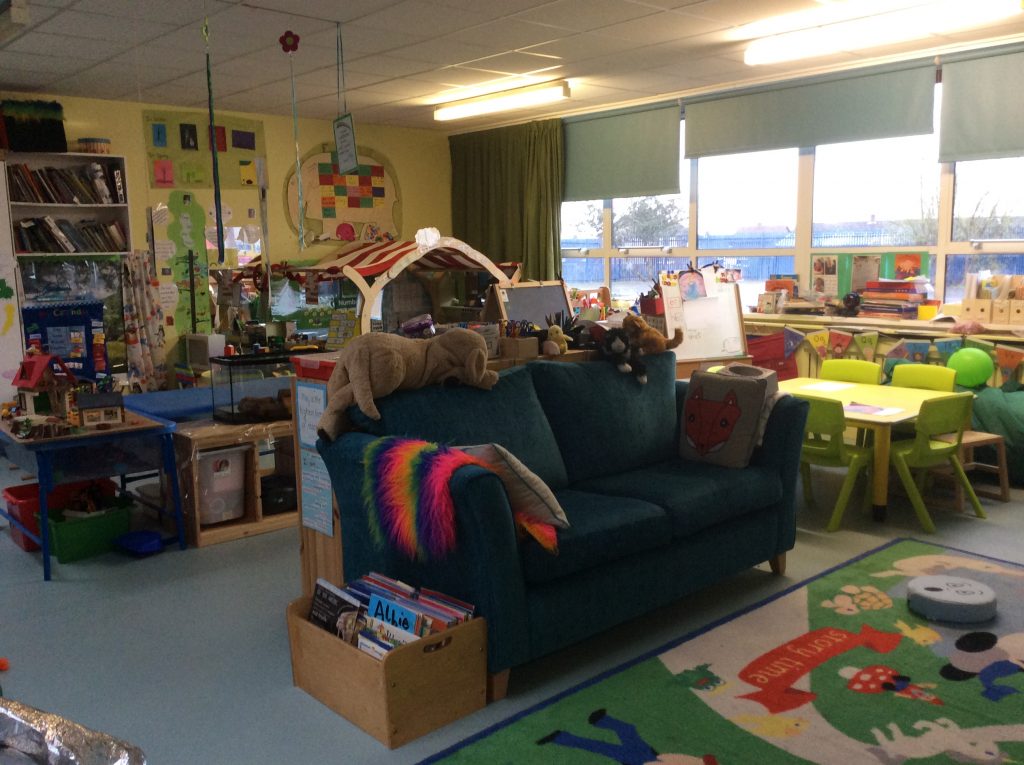How can we ensure that children’s early years lay firm foundations for the future? During the first five years of life children develop at a rapid rate, and their experiences during this period profoundly influence their life chances.

Socio-economic background influences outcomes
Poverty, inequality and social disadvantage help to shape our children’s future, with socio-economic background a key predictor of academic performance at school. Differences between disadvantaged children and their better-off peers are apparent even at an early age. Research suggests that by the age of two, there is a six month gap in the language processing skills of children from advantaged and disadvantaged backgrounds.
However, what parents do is more important than who they are…
The link between socio-economic background and success at school is not absolute. Parents are critical in influencing outcomes for children, particularly in relation to the home learning environment. Health factors during pregnancy and in the early years, such as pre-natal care, smoking, nutrition and overall health, also play an important role.
Early intervention can be crucial in improving outcomes…
Effective early intervention can help to mitigate the effects of disadvantage and inequality, and to reduce the gap in outcomes for children from different backgrounds. As such, they can also generate long-term savings in public spending. However, to be effective, interventions should begin at an early age. Key areas for early intervention include:
- Maternal and child health;
- Parenting; and
- Early education and care.
Sure Start provides early intervention in Northern Ireland, but challenges exist…
Sure Start provides a wide range of services to support children and their families in the 20% most disadvantaged wards in Northern Ireland, expanding to the top 25% by 2016/17. Over 32,000 children are registered with Sure Start projects. However, a number of challenges exist in relation to the programme, with evidence showing that:
- Most providers believe that their catchment area is not appropriate and misses areas of need;
- The Department of Education collects limited data on participants, preventing an assessment of whether the programme is reaching families most in need; and
- A much lower proportion of Protestants than Catholics avail of Sure Start services (18% compared to 62% of registered children at March 2015).
Delivering Social Change programmes also provide early intervention activities, although their effectiveness is yet to be determined…
The Delivering Social Change framework provides for a number of early intervention programmes, including the Early Intervention Transformation Programme which focuses on support for parents and families. Many of its initiatives are entering the pilot phase.
The framework includes 30 nurture groups in primary schools. These provide tailored intervention for young children showing signs of emotional stress or behavioural difficulties, in a supportive environment staffed by a teacher and classroom assistant. A forthcoming evaluation may provide useful evidence on their effectiveness and potential for expansion. Funding for the existing groups is secured until March 2017.
Pre-school is particularly beneficial for disadvantaged children; however, there is room for improvement in current provision…
High quality pre-school provision has positive outcomes for children, particularly in relation to the school readiness and achievement of disadvantaged children. A study in Northern Ireland has found that high quality provision influences children’s academic attainment at the end of primary school, but that low quality provision does not have benefits.
Around 93% of all eligible children in Northern Ireland attend one year of Department of Education funded pre-school provision. In the period 2012-2014, 23% of voluntary and private pre-school settings and 10% of statutory settings inspected were not evaluated as good or better. There were also variations in the quality of leadership, with improvement required across a third of all settings.
The Department of Education may introduce school starting age legislation…
Northern Ireland has one of the lowest school starting ages in Europe. In addition, there is evidence that the youngest children in a year group tend to underachieve compared to older classmates. This ‘birthdate effect’ is strongest during pre-school and primary school, and diminishes over time. However, it may remain throughout post-primary education.
The Department of Education may bring legislation to allow parents to defer their child’s entry to school in exceptional circumstances during this mandate. However, this will not relate to a child’s month of birth; rather, it will be based on a child’s best interests. Evidence on the effectiveness of allowing for flexibility in the school starting stage is inconclusive.
Monitoring the effectiveness of early interventions will play an important role in the coming years…
While tackling wider deprivation and social inequalities is not within the gift of the education system, it is evident that early intervention can help to reduce their effects on children’s lives. In the new Assembly mandate, scrutiny of the effectiveness of existing initiatives, together with monitoring the extent to which such services are cohesive and reaching those most in need, will help to inform this fundamental area of social policy.

